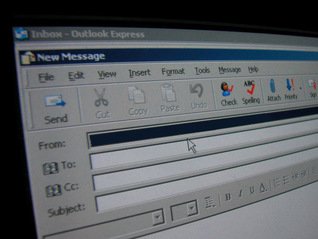The Texas Supreme Court decided an interesting case last week regarding easements. The case was Copano Energy LLC et al. v. Stanley D. Bujnoch, Life Estate, et al. One of the interesting aspects of this case was the part that emails played in the transaction.
The plaintiffs, who were the landowners, owned land in Lavaca and DeWitt counties. The landowners had previously agreed to a 30 foot wide easement to Copano for a 24 inch oil and gas pipeline. That pipeline was installed. In 2012, Copano asked the landowners for second easement to construct a 24 inch pipeline on the landowners’ property. The landman for Copano and an attorney representing the landowners exchanged a number of emails in the course of negotiating the terms of the proposed easement. In one email, the landman agreed to pay the landowners a specific price and agreed to remedy damage to the landowners’ property caused during the construction of the original pipeline. The attorney replied “In reliance on this representation we accept your offer and will tell our client you are authorized to proceed with the survey on their property.” Later emails from Copano transmitted amendments to the original easement and an amended plat. Some of these later emails offered a lower price per foot for the easement. A still later email from the secretary of the landowners’ attorney transmitted revisions to the original easement agreement pertaining to some, but not all, of the landowners’ property to the landman. A still later email from the landman stated that: “I am fine with these changes”. Finally, the project manager for Copano then sent a “compensation proposal letter” to the landowners’ attorney with completely different compensation terms. There was no written acceptance of these terms.
The second pipeline was never built. The plaintiffs claimed that the series of emails, taken as a whole, created an enforceable written contract that satisfied the Texas Statute of Frauds and sued Copano for breach of contract.
The Court notes that the Texas statute of frauds provides that contracts for the sale of real estate “are not enforceable unless the promise or agreement, or a memorandum of it” is “in writing” and “signed by the person to be charged with the promise or agreement or by someone legally authorized to sign for him.” The Court noted that a contract does not always have to be a single document and that multiple documents can comprise a written agreement even if they were executed at different times. However, the essential elements of the agreement must be evident from the multiple writings. The Court quotes a previous decision that the writing or writings “must contain the essential terms of a contract expressed with such certainty and clarity that it may be understood without recourse to parole evidence to show the intention of the parties”. The Court found that the emails, taken as a whole, did not meet the standard: they did not contain all the essential elements of an easement between the landowners and Copano. Instead, the emails only contain discussions of potential contract terms, and failed to show the specific terms of the easement in writing and a specific acceptance of those terms in writing.
Emails are a ubiquitous facet of modern life. As the Supreme Court makes clear, a series of emails certainly can create a binding contract. However, it is essential that the emails comply with the statute of frauds.
 Texas Oil and Gas Attorney Blog
Texas Oil and Gas Attorney Blog


